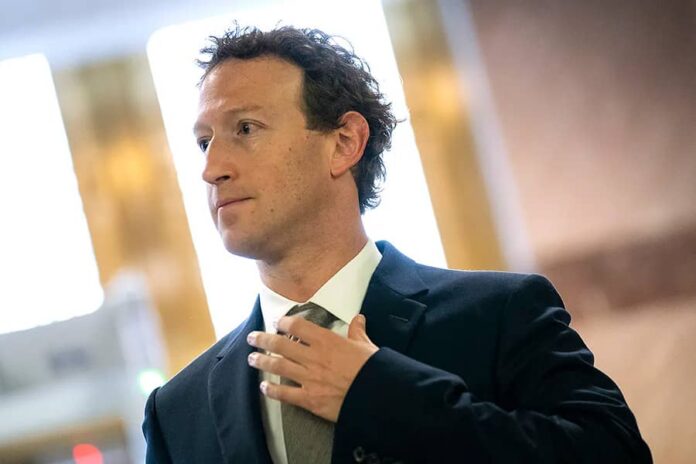Mark Zuckerberg, the CEO of Meta, recently took to Joe Rogan’s podcast to explain his choice to dial back the company’s content moderation rules, a move that’s sparked quite a bit of backlash—even from some folks within his own team.
When Rogan asked him how people have been reacting to these changes, Zuckerberg said, “It probably depends on who you ask.”
This week, Meta rolled out some significant updates, including the decision to scrap its independent fact-checking program. Instead, they’re launching a community notes feature similar to what X (formerly Twitter) has. This shift means that platforms like Facebook, Instagram, and Threads will now depend more on users to flag misinformation. Additionally, Meta is raising the thresholds for its automated content filters. So, while fewer problematic posts will be automatically removed, it also means that fewer good posts will get taken down by mistake. Interestingly, although not officially announced, reports suggest that they’re also winding down their major diversity, equity, and inclusion initiatives.
In a nearly three-hour chat, Zuckerberg laid out his reasoning for steering his social media platforms back toward a focus on free expression. He emphasized the core philosophy behind these companies: “You only start one of these companies if you believe in giving people a voice. The essence of social media is about allowing people to share what they want. It all goes back to our original mission of empowering people to connect and share freely.”
The timing of these announcements is hard to overlook. They came just days before Donald Trump’s inauguration. The President-elect had previously accused Zuckerberg of plotting against him during the 2020 election and even hinted at legal repercussions if anything similar happened again.
When talking about Trump, Zuckerberg expressed a pretty hopeful outlook on the new president, saying he’s all about wanting America to succeed. He emphasized how crucial it is for the government to support American tech firms internationally, hinting at the challenges Meta has faced in the European Union.
That said, Zuckerberg insisted that the timing of the changes happening at Meta was just a coincidence. He pointed out that there’s never really an ideal moment for major shifts in content moderation, and mentioned that these adjustments have been in the works for quite some time.
He shared his concern from the start about being in a position where he has to determine what’s true for billions of users. “It’s a pretty wild spot to be in,” he noted.
Over the past ten years, he’s noticed a growing push for censorship based on ideology on his platforms. He highlighted two key moments: the 2016 U.S. presidential election and the beginning of the COVID-19 pandemic in 2020, when this really came to light.
Zuckerberg mentioned that the Biden administration put pressure on them to remove information that was actually accurate. He pointed out that some of the worries about vaccine side effects that they took down shouldn’t have been dismissed as misinformation.
In his chat with Rogan, Zuckerberg acknowledged that X and Twitter were ahead of the game when it came to content moderation, mentioning that his platforms would be introducing a community notes feature. Interestingly, a number of advertisers left X recently due to its content moderation rules, and now X is fighting back in court, claiming collusion over it.
During Friday’s episode, Rogan and Zuckerberg drifted away from the usual talk about content moderation and explored a bunch of different subjects like jiu-jitsu, artificial intelligence, and shifts happening in American culture.
Zuckerberg, the CEO of Meta, mentioned that he’s noticing a major shift where people are starting to trust government officials and traditional media less and less. Instead, it seems like social media creators and podcast hosts—like Rogan—are stepping into the spotlight and earning more trust.
This change in sentiment is also evident in how Meta is handling news on its platforms. They actually took a break from promoting news and political content for a bit. But this week, Zuckerberg hinted that they’re planning to bring some of that political content back into their promotional mix.
At one point during their chat, Zuckerberg expressed his view that Western society, particularly corporate America, has become “emasculated” and “neutered.” He argued that there needs to be a stronger masculine presence in both the country and its businesses.
Throughout the podcast, Zuckerberg reflected on how he feels he’s let the media dictate too much over the past decade and accepted blame for issues that weren’t really his fault. This isn’t the first time he’s mentioned that Meta would be taking a step back from being responsible for everything negative happening on its platform, but he seemed more open and assertive about it than ever during this discussion.
He even pointed out, “We just got to this point where there were things you just couldn’t say [on our platforms] which were mainstream discourse,” referring to how Meta has silenced conservative voices.
Meta’s CEO, Mark Zuckerberg, pointed out that Pete Hegseth, Trump’s pick for defense secretary, has made some pretty controversial claims about women not being fit for combat roles. He mentioned that under the old content moderation guidelines at Meta, such statements wouldn’t fly because they discriminate against a protected group. But with the new policies in place, those kinds of comments are now acceptable.
Zuckerberg remarked, “If it’s fine to say something like that in Congress, then it seems fair to discuss it on social media too.”
As for Dana White, the head of UFC, Zuckerberg explained that he brought him onto his board because of his strong leadership skills and wanted to have more people who can stand their ground in the company.
“There’s a lot of pressure from governments and various groups worldwide on us, and we need tough advisors to help us navigate those challenges,” Zuckerberg shared regarding White’s role.
